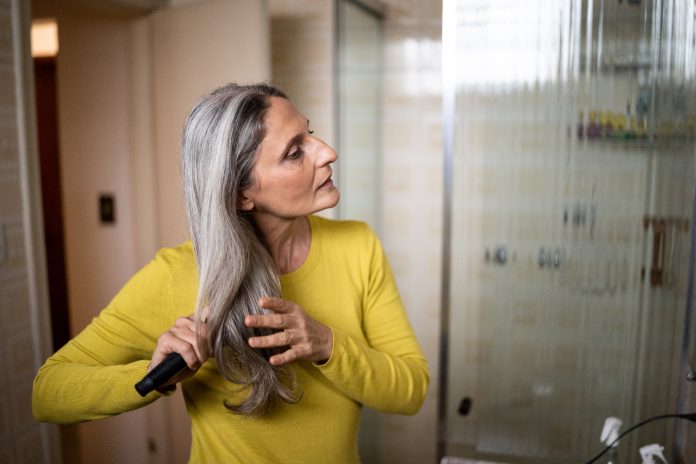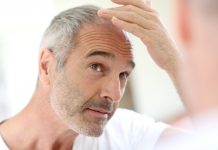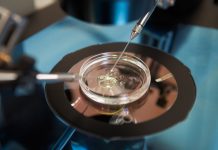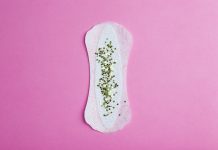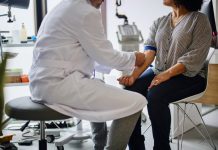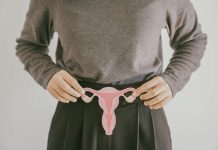According to hair stylists, 68% of women are unhappy about their hair. How women feel about our hair correlates strongly with our feelings. But how do our diet and lifestyle truly affect our hair?
The most common complaints are that our hair is ‘too dry’, ‘it’s falling out’, or it ‘grows too slowly’. Unfortunately, there’s no miracle solution to growing our hair. But what can we do to help our hair grow?
How does hair grow?
We are born with around 100,000 hair follicles on our scalp. Each hair grows from the root situated in the base of the hair follicle, hair is made of protein. For hair to grow, it requires a good blood supply to the hair root and a diet containing plenty of protein.
The hair growth cycle
The hair growth cycle has 4 phases. The first phase, the anagen phase, occurs when the hair is growing in length. Each hair grows about 1 cm per month and stays in the anagen phase for three to 5 years. 90% of the hair on your head is in the anagen phase.
The catagen phase lasts around ten days. The hair becomes separated from the base of the hair follicle, but it doesn’t fall out.
Next, the hair passes into the telogen phase, a resting phase that can last three months. The end part of the telogen phase, called the exogen phase, is when the hair is shed. Normally, around 50 -100 hairs are lost every day. New hair grows through the follicle and pushes the old dead hair out.
The telogen phase
Normally, only 15% of the hair on the head is in the telogen phase at any one time. A telogen effluvium occurs when 70% of the hair on the scalp passes into the telogen phase all at once. You notice you are suddenly shedding a lot of hair all at once. This can occur, for example, after pregnancy, after a about of illness due to iron deficiency or sudden stress such as bereavement.
What affects hair growth?
Hair growth is dependent on many variables. The most important of these is your genetic makeup. Still, other factors that greatly influence hair growth include diet and nutrition, stress, smoking, sleep deprivation, excess alcohol, excessive fitness regimes, U/V light and pollution.
Male baldness is frequently due to the sensitivity of the hair follicles to dihydrotestosterone – a testosterone metabolite – which causes hair follicles to shrink. Women sometimes suffer from hair loss due to excess androgens, for example, in polycystic ovarian syndrome (PCOS). Hair loss can be due to thyroid disease and iron deficient anaemia, and it is also a less common side effect of the contraceptive pill.
In women, hair growth is associated with estrogen levels. In pregnancy, hair growth is often good, but a lot of hair may be lost immediately after the pregnancy – a telogen effluvium – when estrogen levels fall after childbirth. Similarly, at menopause, when estrogen levels fall precipitously, some women notice hair loss.
Nutrition and hair growth
Good nutrition is vital for hair growth but cannot reverse changes due to other genetic, lifestyle or disease factors. For your hair to grow optimally, you do need a healthy diet. Here’s a list of the vital dietary components –
- Anti-inflammatory foods
- Studies have shown hair grows best when we eat anti-inflammatory foods, such as oily fish, nuts and flaxseed, which contain omega-3 fatty acids and gamma linoleic acid (GLA). In one study, a diet rich in vitamin E improved hair growth by 34% – vitamin E is a powerful antioxidant and anti-inflammatory agent.
- Protein
- Eating adequate protein is essential, as protein deficiency leads to hair loss. The recommended protein intake is 0.75 g per Kg of body weight. This means a 60 kg woman needs 45 g of protein per day. Spread out the protein so you eat some at every meal throughout the day.
- Vitamin D
- Vitamin D is needed to regulate the hair growth cycle. When vitamin D levels are low, the anagen (growth) phase shortens, and the telogen (resting) phase shortens.
- Zinc
- Zinc is known to prevent the catagen phase, where the hair separates from the follicle and then drops out. Studies have shown improved hair growth in those with low zinc levels after taking zinc gluconate supplements. Obtaining vitamins and minerals from food rather than supplements is always preferable. Zinc is found in red meat, nuts, seeds, dairy and whole grain products.
- Copper
- Copper is needed for the health and differentiation of the dermal papilla – the site where follicular cells originate. However, having too much copper can also lead to hair loss. Copper is present in nuts, nut butter, cocoa, chocolate and some cereals.
- Arachidonic acid (AA)
- AA is an omega-6 fatty acid needed for the growth and maturation of keratinocytes and elongation of the hair shaft. It’s been shown to stimulate the production of growth factors needed for hair growth. AA is found in poultry and eggs.
- Iron
- Iron is vital for hair growth. Ferritin is stored in hair follicles. Iron deficiency leads to arrested development of the hair follicle and hair loss. When ferritin levels are low, it leaves the hair follicles and enters the bloodstream. This means that a low ferritin level is often not picked up on a blood test – but the diagnosis is evident from the hair loss itself. Iron metabolism requires vitamin A, C, beta-carotene and many other amino acids. Iron is also needed for thyroid hormone metabolism. Deficiencies of these substances can slow or deter hair growth and lead to hair loss.
- HRT
- Estrogen replacement in the peri and postmenopausal period can reduce hair loss and stimulate growth. However, certain progestogens – mandatory as part of combined HRT in women who still have their uterus – can cause hair loss. The issue is not fully understood, but women complaining of hair loss are usually recommended to use less androgenic progesterone as part of their HRT regime, such as drospirenone or medroxyprogesterone acetate.
Each woman needs an in-depth menopause consultation before deciding whether or not to start HRT. However, for the majority of healthy menopausal women, the benefits of taking HRT outweigh the risks. HRT is not usually prescribed purely for hair loss, but there may also be other menopausal symptoms.
The effect of diet on poor hair growth
A poor diet slows hair growth and even causes hair loss. History reminds us of sailors dying at sea of scurvy, with skin haemorrhages and hair loss, due to vitamin C deficiency. Children with protein-deficient malnutrition from kwashiorkor and marasmus suffer from hair loss. Severe carbohydrate deficiency can also cause hair loss.
In a 2019 review of nutrition and hair loss, the authors reported the following;
- Vitamin A
- While adequate vitamin A is required for hair growth, enough vitamin A is obtained from a balanced diet. Excess vitamin A can be toxic and can cause hair loss.
- Vitamin B
- B vitamins are also obtained from eating a balanced diet. The only B vitamin deficiencies associated with hair loss are riboflavin (B2), biotin (B7), folate and B12.
- Vitamin C
- Vitamin C is a vital vitamin for human health. It is a highly powerful antioxidant, so it helps lower inflammation. It is needed for the absorption of iron from the intestines. Vitamin C is vital for anyone with iron deficiency. There are no data on vitamin C and hair loss.
- Vitamin D
- Vitamin D plays many roles in hair growth. It is anti-inflammatory and immunoregulatory. Many studies have confirmed vitamin D deficiency can result in hair loss. (See comments above.)
- Vitamin E
- Oxidation – which takes place continuously in all the cells of our body to produce energy – produces byproducts called reactive oxygen species (ROS). These ROS are dangerous as they can damage DNA and stimulate inflammation. Vitamin E is a powerful antioxidant and counteracts this oxidative stress. Low levels of vitamin E are associated with hair loss. (See comments above.)
- Iron
- Low iron levels can cause telogen effluvium (TE) –when this happens, 70% of the actively growing hair passes into the telogen – hair-shedding phase –due to some stressor. It happens commonly, for example, after pregnancy.
- Selenium
- This is a trace mineral that is a cofactor in the production of 35 different body proteins. A lack of selenium has been linked to a lack of pigment in the hair and can cause premature greying.
- Zinc
- Zinc deficiency can also cause a telogen effluvium. In some studies, zinc supplementation has improved hair growth.
The worst type of diet for healthy hair
- A high-sugar diet
- Eating high-sugar food results in spikes in insulin, adrenaline and cortisol levels. Hyperinsulinemia increases systemic inflammation, which is harmful to hair growth. High cortisol levels can stimulate a telogen effluvium. Eating high-sugar foods also leads to the build-up of end-glycation products, which can reduce hair’s protein content by as much as 50%, increasing the risk of hair breakage.
- A high-fat diet
- Although the keto diet burns fat very effectively, the lack of carbs can shock the body into a telogen effluvium. It’s vital to eat enough protein on a keto diet.
- Vegan diet
- In clinical studies vegans tend to have lower levels than meat eaters of the following vitamins and minerals: vitamin B12, vitamin D, iron, zinc, iodine and calcium. Deficiencies of many of these can affect hair growth and cause hair loss. Vegetarians are also potentially at similarly increased risk.
- Fasting
- There is no data on fasting and hair loss, but fasting can act as a stressor and shock the body into a telogen effluvium.
- Low-calorie diet
- It’s very important to diet sensibly and safely and not to try fat diets, which never last and shock your body, encouraging hair loss. Always eat a well-balanced diet full of protein, fruit and vegetables. It’s not the calorie count that will affect your hair; it’s the quality of your food. When dieting, it’s sensible to take a multivitamin every day.
What’s a good diet for healthy hair?
For best results, choose a varied, balanced diet that is not restrictive and allows you to eat all different food groups. Avoid fad diets. Avoid high-sugar, high-fat diets. Avoid processed foods and cook from scratch using fresh, good-quality ingredients. If you must restrict your diet for any reason, seek medical advice on what supplements you should take. Don’t waste money on vitamin supplements if you eat a healthy diet – spend the money on good quality food instead.
One good option is the Mediterranean diet (MD). This balanced, varied diet has numerous delicious recipes and contains all the correct nutrients for healthy hair growth. Moreover, just following the MD can help you lose weight. In a 2010 meta-analysis of 16 studies, those who followed the MD and exercised regularly for six months lost an average of 4 Kg.
Vitamins A, C, D, and E, zinc, B vitamins, iron, biotin, protein, and essential fatty acids are needed to grow healthy hair. If you follow the MD, you will be getting all these essential nutrients.
Which foods promote hair growth?
- Eggs
- These are a great source of biotin needed to make keratin the main protein in hair. Plus, eggs contain zinc and selenium.
- Berries
- Blueberries, strawberries, raspberries – any bright-coloured berries – are packed with vitamin C – a highly powerful antioxidant. Vitamin C is needed to produce collagen.
- Greek yoghurt
- This is high in protein and pantothenic acid (vitamin B5), which has also been shown to aid hair growth.
- Green leafy vegetables
- These contain nitrates needed to make nitric oxide (NO) for blood vessels to dilate and relax. Good NO production is vital for a healthy blood supply to the scalp and the hair follicles.
- Oily fish
- Salmon, mackerel, trout and herring contain omega-3 fatty acids that assist hair growth in various studies. Fatty fish also contains vitamin B, Vitamin D and selenium.
- Sweet potatoes
- These are rich in beta-carotene, which is converted in the body to vitamin A, needed for hair growth.
- Avocado
- These are a great vitamin E source, which is a powerful antioxidant. Lowering inflammation in the scalp.
- Nuts
- A great source of vitamin E, vitamin B, selenium and essential fatty acids.
- Seeds
- Very versatile, it’s easy to add seeds to your diet. They are packed with micronutrients, including vitamin E, zinc and selenium.
- Soybeans
- These contain an ingredient called spermidine, which has been shown to lengthen hair in the hair shaft.
- Meat
- Meat contains iron, which is vital for hair growth. However, don’t overdo the meat, as excess consumption increases the risk of bowel cancer.
Other important factors about healthy hair growth
Remember, for healthy hair, you also need to think about all the other aspects of your health and follow a good hair care regime. Your hair reflects your general health.
- Drink more water. 25% of each strand of hair is made up of water.
- Stop smoking – smoking damages the hair root, causing hair to break and fall out. It also dries out the hair, increasing the risk of breakage. Smoking restricts the blood supply to the follicle. When you stop smoking, you should notice your hair starts to grow thicker and faster.
- Take regular exercise to stimulate your blood circulation to the scalp.
- Use the right hair care products – speak to your hairdresser.
- Use a wide-toothed comb and be gentle with wet hair.
- Deep condition your hair regularly.
- Protect your hair from excess UV light, chlorine and pollution.
- Do all you can to de-stress – making time for rest.
Final thoughts
Not feeling confident about your hair can dramatically affect your self-confidence. Like all other aspects of our health, growing our hair is irrevocably linked to other lifestyle factors. We can’t change our genes, but we can eat healthily, exercise, drink more water, and take the steps needed for a good head of hair.
What can you do to improve the growth of your hair?
If you are worried about your hair, speak to your GP or a Consultant Dermatologist. The first step is an accurate diagnosis. There are a variety of hair loss products available that can help in the treatment of hair loss.
For more information
- The Institute of Trichologists – The recipe for healthy hair growth
- Dermatology and Therapy – Vitamins and minerals in hair loss: A review (2019)
This piece was written and provided by Dr Deborah Lee, Dr Fox Online Pharmacy
Editor's Recommended Articles
-
Must Read >> SCUBE3 as a treatment for hair loss and alopecia
-
Must Read >> How has COVID-19 changed women’s health attitudes?


